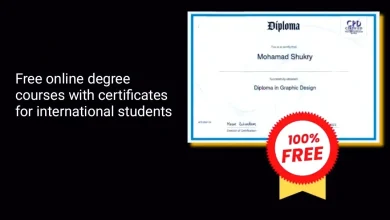Educators Handbook: A Comprehensive Overview
The Educator’s Guide to Success
Table of Contents
Being an educator is a demanding but fulfilling career. To connect with kids, teach them new things, and enable them to realize their full potential, it requires a particular kind of person. This manual is for you if you are an educator or are considering becoming one. Everything you need to succeed in the classroom is covered, including lesson planning, classroom management, and assessment.
Chapter 1: The Essentials of Classroom Management
One of the most crucial abilities a teacher may possess is classroom management. It is the capacity to establish a secure and structured learning space where pupils may concentrate on their work. Among the many diverse classroom management techniques, some of the most crucial ones are as follows:
- establishing clear rules and expectations
- consistently enforcing those rules
- building positive relationships with students
- using positive reinforcement
- addressing misbehavior promptly and effectively

Chapter 2: Lesson Planning
An additional crucial ability for educators is lesson planning. Making decisions about what to teach, how to teach it, and how to evaluate student learning are all part of this process. Lesson planning can be done in a variety of methods, but some of the most crucial considerations are as follows:
- ensuring that the lessons are aligned with the curriculum
- making sure that the lessons are appropriate for the level of your students
- using a variety of teaching methods
- providing opportunities for student practice and feedback.
Chapter 3: Assessment
The process of assessment involves the collection of data regarding student learning. It is employed to assess how effectively pupils are understanding the subject matter, spot any areas where they require further assistance, and make judgments regarding instruction. Although there are many various kinds of assessments, some of the most popular ones are as follows:
- quizzes
- tests
- projects
- presentations
- observations
Chapter 4: Differentiated Instruction
Differentiated instruction is the process of adapting instruction to each student’s unique needs. Because every student learns differently, this is crucial. Some pupils could require more difficult assignments, while others might require more help. Differentiated instruction can be carried out in many different ways, including:
- using different teaching methods
- providing different learning materials
- offering different levels of scaffolding
- grouping students heterogeneously
Chapter 5: Professional Development
Learning new knowledge and abilities to enhance your teaching practice is known as professional development. The most recent research and educational best practices should be kept up to date by educators. There are numerous strategies to pursue professional development, including:
- attending workshops and conferences
- reading professional journals
- taking online courses
- collaborating with other educators
Chapter 6: The Importance of Relationships
One of the most crucial things you can do as a teacher is to develop relationships with your students. Strong interpersonal ties contribute to the development of a welcoming and supportive learning environment and can enhance student learning. Here are some pointers for developing close bonds with your students:
- Get to know every student personally.
- Be approachable and friendly.
- Show an interest in the opinions of your students.
- Be supportive and encouraging.
- Be fair and consistent.

Chapter 7: The Joy of Teaching
Though it might be difficult at times, being a teacher is also tremendously gratifying. Nothing compares to the satisfaction of watching a student develop. You can succeed as an educator if you have a strong commitment to education and are prepared to put in a lot of effort.
Chapter 8: Creating a Positive Learning Environment
An atmosphere that makes children feel secure, valued, and supported is conducive to learning. They can take chances there, make mistakes, and grow from them. The following advice will help you create a welcoming learning environment:
- Be clear about your expectations for behavior.
- Set a positive tone in the classroom.
- Be patient and understanding.
- Be fair and consistent.
- Celebrate student successes.
Chapter 9: Using Technology in the Classroom
Technology is an effective instrument for education. It can be used to engage students in learning, conduct instruction, and offer feedback. For employing technology in the classroom, consider these suggestions:
- Choose the right technology for the task.
- Make certain that students are tech-savvy.
- Provide clear instructions and expectations.
- Use technology to support conventional education, not to replace it.
Chapter 10: Dealing with Difficult Students
Every teacher at some point in their career will deal with challenging pupils. These pupils may be impolite, disruptive, or uninterested in learning. Here are some suggestions for handling challenging students:
- Stay calm and collected.
- Address the behavior immediately.
- Be specific about what the student is doing wrong.
- Offer the student a choice of how to behave.
- Follow through with consequences if the student does not change their behavior.
Chapter 11: Managing Stress
Being a teacher may be difficult. Both students and the school system place heavy demands on teachers. It’s crucial for educators to learn stress management techniques so that it doesn’t affect their work. Take into account the following recommendations to lessen stress:
- Take care of yourself physically. Eat healthy foods, take rest and exercise regularly.
- Take breaks throughout the day. Get up and move outside and take some fresh air.
- Talk to others people you trust about your feelings.
- Find ways to relax and de-stress, such as reading, listening to music, or spending time in nature.
Chapter 12: Staying Motivated
It’s critical for educators to maintain their motivation, especially while dealing with difficulties. You may maintain your motivation by heeding the following advice:
- Set goals for yourself and your students.
- Celebrate your successes, no matter how small.
- Find a mentor or workmate who can be your help.
- Stay update on the latest research and best practices.
- Keep in mind your original motivation for becoming a teacher.
These are just a few of the subjects that might be covered in a manual for teachers. Depending on the requirements of the instructors who would use it, the handbook’s specific content would change. The aim of every chapter would be to assist educators in succeeding in their line of work, nevertheless.
Educator’s Handbook logo
The educators handbook logo given here:

Educators handbook costs
The price will vary depending on the particular handbook and the publisher because there are numerous distinct educational handbooks available. However, a hardcover edition of an educator’s handbook would cost you anything from $20 and $100. There are several manuals that can also be purchased in paperback or electronically, which might be less expensive.
Here are some specific examples of educators handbooks and their prices:
- James W. Guthrie and Carol A. Midgley’s The Educator’s Handbook for Understanding and Closing Achievement Gaps is available in hardcover for $51.11, paperback for $31.08, and Kindle for $31.08.
- Julie Causton, Chelsea Tracy-Bronson, and Cheryl M. Jorgensen’s The Educator’s Handbook for Inclusive School Practices is available in hardcover for $49.95, paperback for $34.95, and Kindle for $19.99.
- Thomas J. Lasley’s The Educator’s Handbook for School Safety and Crisis Management costs $49.95 in hardcover, $34.95 in paperback, and $19.99 in Kindle format.
I advise conducting an online search to compare costs from several sellers if you’re seeking for a specific educators handbook. Additionally, you can ask your school or district if they have any instructor handbooks that you can borrow or get.
Educators handbook GCNSC
The regulations and procedures regulating the employment of educators in the district are fully described in the Guilford County Schools (GCS) Educator’s Handbook. It addresses a variety of subjects are given below :
- Hiring and onboarding procedures
- Professional development and evaluation
- Classroom management and discipline
- Student rights and responsibilities
- Reporting child abuse and neglect
- Conflict of interest and ethical conduct
- Health and safety
- Leave and benefits
- Grievance procedures
On the GCS website, the Educator’s Handbook is accessible online. By getting in touch with the Human Resources Department, you can also request a hard copy.
Here are some of the key topics covered in the GCS Educator’s Handbook:
- Code of Ethics: In their professional activity, all educators are expected to observe the highest ethical standards. Confidentiality, conflicts of interest, and professional conduct are addressed in the Code of Ethics.
- Classroom management: Teachers are in charge of establishing a secure and disciplined learning environment for their pupils. The Handbook offers advice on effective classroom management strategies, such as rewards for good behavior, behavior contracts, and sanctions for bad behavior.
- Student discipline regulations for the district, such as those regarding suspensions, expulsions, and alternative education programs, are outlined in the Handbook.
- Students have a number of rights, including the right to a free and suitable education, the right to be free from discrimination, and the right to due process. These rights and obligations are thoroughly explained in the Handbook.
- Reporting Child Abuse and Neglect: As mandated reporters, educators are obligated to alert the authorities to any suspected instances of child abuse or neglect. The Handbook offers instructions on how to report suspected child abuse or neglect and what to do next.
- Conflict of Interest: Activities that might put educators in a conflict of interest are not permitted. Conflicts of interest are defined in the Handbook, along with instances of actions that are forbidden.
- Ethics: Teachers are required to conduct themselves ethically at all times. The Handbook offers recommendations for moral behavior, such as steering clear of conflicts of interest, disclosing possible wrongdoing, and maintaining confidentiality.
- Health and Safety: Teachers are in charge of keeping their pupils’ learning environments safe and healthy. The Handbook offers recommendations on matters pertaining to health and safety, including fire drills, evacuation protocols, and the handling of hazardous items.
- Sick leave, vacation time, and health insurance are just a few of the advantages that educators are entitled to. The Handbook provides a thorough explanation of the district’s leave and benefits procedures.
- Grievance procedures: Educators have the right to register a grievance if they have a problem with the district. The grievance procedures that must be followed are described in the Handbook.
All of the district’s educators can benefit from the GCS Educator’s Handbook. It offers advice on a variety of subjects, from classroom management to ethical behavior. You can make sure you are fulfilling the district’s requirements and giving your kids the best education possible by becoming familiar with the Handbook.

Educators handbook contract number
There isn’t a uniform code used by all school districts for the Educators Handbook Contract Number. The contract number for each school district’s educators handbook may vary. To find out the contract number for your school district’s educators handbook, get in touch with the human resources division.
Examples of Educators Handbook Contract Numbers from various school districts are provided below:
- Williams Bay School District: 2022-2023
- Appleton Area School District: 2023-2024
- Milwaukee Public Schools: 2023-2024
- Madison Metropolitan School District: 2023-2024.
Conclusion
anything it takes to be a good educator is more complex than anything this manual has ever attempted to cover. Along the road, you’ll discover a lot more stuff. But if you bear these fundamental ideas in mind, you’ll be on the right track to a fruitful career in education.
FAQs about educators handbook.



